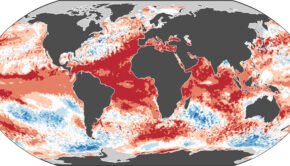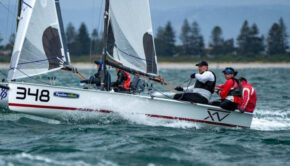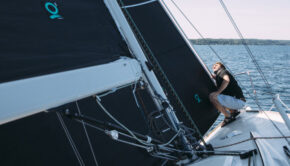Being ready for medical emergencies
Published on May 4th, 2023
When sailing offshore, being prepared for adversity is more than just shopping at the local chandlery as George Day shares in the Cruising Compass:
Most of us who plan and then make long cruises across oceans are all over preparing our boats for the challenges of seafaring. But, being prepared for medical emergencies when far from a doctor or a hospital is another matter. In the many years I have spent cruising and sailing in remote parts of the world, I’ve seen a range of medical emergencies that had to be dealt with without a doctor or medical facilities.
Sailing through Windward Passage, a crewmember came down with a bad case of kidney stones that required a serious pain killer injection. In French Polynesia, a crewmember caught dengue fever that brought a dangerous 105-degree fever and required large doses of acetaminophen. Also in French Polynesia, a cruiser friend ate a reef fish and came down with a case of ciguatera poisoning that put him into anaphylactic shock and required a shot of epinephrine (Epi Pen).
We’ve had crew step on sea urchins (and you know how to treat that) and get badly stung by a Portuguese man of war requiring lidocane. And, I’ve seen coral cuts that became badly infected and required powerful antibiotic drugs and ointments. In each instance, we and our buddy cruisers were able to provide the needed treatments from the stores of our medical kits.
So, as you prepare for the cruising life in remote regions of the planet, take time to confer with your doctor, take first aid and CPR courses, learn how to give an injection and apply stitches and work with adventure medicine professionals like Michael Jacobs, MD and Eric Weiss, MD to build a medical kit that will meet just about any emergencies that cruisers face out there. To check out the Adventure Medial Kit website, click here.









 We’ll keep your information safe.
We’ll keep your information safe.